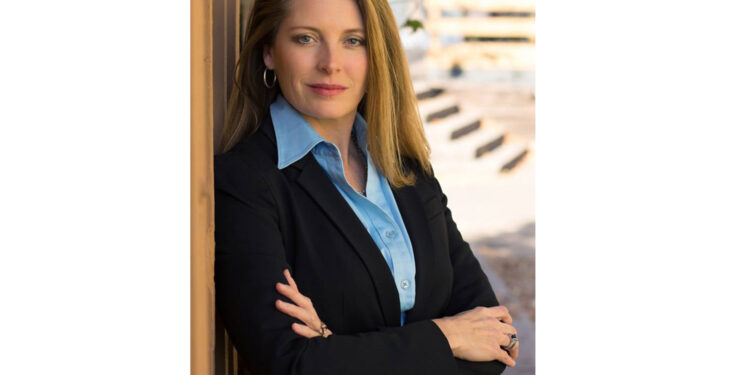“If you’re not at the table, you’re on the menu. You have to be willing to serve and be involved in the grassroots.” – Dr. Kathleen Foster Elliott
Lani Hansen/Senior Reporter
OKMULGEE, Oklahoma– Muscogee (Creek) citizen Kathleen Foster Elliott, OD, Dipl. ABO found her passion in advocacy when she became the Government Relations Specialist for the Muscogee Nation.
Dr. Elliott upholds a family legacy in more than one way; she’s a second-generation OD, the granddaughter of banker who worked to make loans more accessible to Native Americans and the great-great granddaughter of Chile Morgan, a member of the tribe who came to Oklahoma on the Trail of Tears. Her father, George Foster, OD, served as Dean of the Northeastern State University College of Optometry (NSUOCO). He worked to improve the profession and expand access to Native Americans.
“My father was part of helping get laser scope for optometrists in Oklahoma,” Elliott said. “He also expanded the program at NSUCO to address the three-year wait times for Cherokee applicants.”
Elliott worked in private practice with her father as well as for a stint with Muscogee and Cherokee Nation. She was named Optometrist of the Year in 2014 and Legislative Optometrist of the Year in 2012. For her the timing seemed right earlier in 2021 to make a big change.
“I’m at a place in government relations where I want to make it better for the next generation of Native American citizens,” she said. “I feel humbled as a public servant.”
Working to advocate for MCN has been more meaningful than Elliott could have imagined. Although her family was not raised in traditional Native American ways, she is being drawn closer to those roots.
“In this role, I’m coming closer to the traditions. I’m learning more about the culture and roots,” she said.
Her background in optometry has proven to be solid experience for this role.
“Optometry is a legislated profession. It behooves everyone to be involved at the state, local and federal level,” Elliott said. “I can use the skill set learned in optometry and apply it to advocacy in government relations.”
Elliott advocates for the tribe on multiple levels. The advocacy work she does for optometry helps her in the conversations and efforts to showcase the initiatives that the MCN is undertaking. In her role, she connects on municipal, federal and state levels with the key directors and executive branch in the tribal government and promotes collaboration.
“We tell the story of the positive things that are happening,” she said. “A lot of the week is meeting with the chambers of commerce, mayors, state government officials and others in our reservation boundaries of 11 counties. We work on mutual shared interests.”
She added, “For example, when the COVID-19 pandemic started our Native American population was at a high risk.”
With the tribe’s vaccine efforts with the state and local health department, they were able to push the vaccination effort along more quickly, delivering more than 35,000 vaccines.
Her understanding of health care also aligns with some key initiatives. She said being a doctor is one initiative that helps her, with relationships built over time with legislative connections.
“I have the ability to interface and have the passion to help the citizens we represent,” she said.
In her role, Elliott has brought in help to start several initiatives to help Native American students such as, opening more spots in academic institutions and a student mentoring program to encourage Native youth to go into medicine.
Additionally, with MCN purchasing a hospital recently it will make that facility available to serve Native and non-Native citizens.
Her hope is that new ODs will learn about advocacy and make waves.
“I hope I can encourage the next generation to know that optometry can open many doors,” she said.
Elliott comes from a line of leaders and individual effort. One of her brothers is involved in helping Native American pre-health students. Her other brother, Captain Calvin Foster is an advocate with the Pentagon for Native American issues and helped name the U.S. Navy ship after the tribe.





